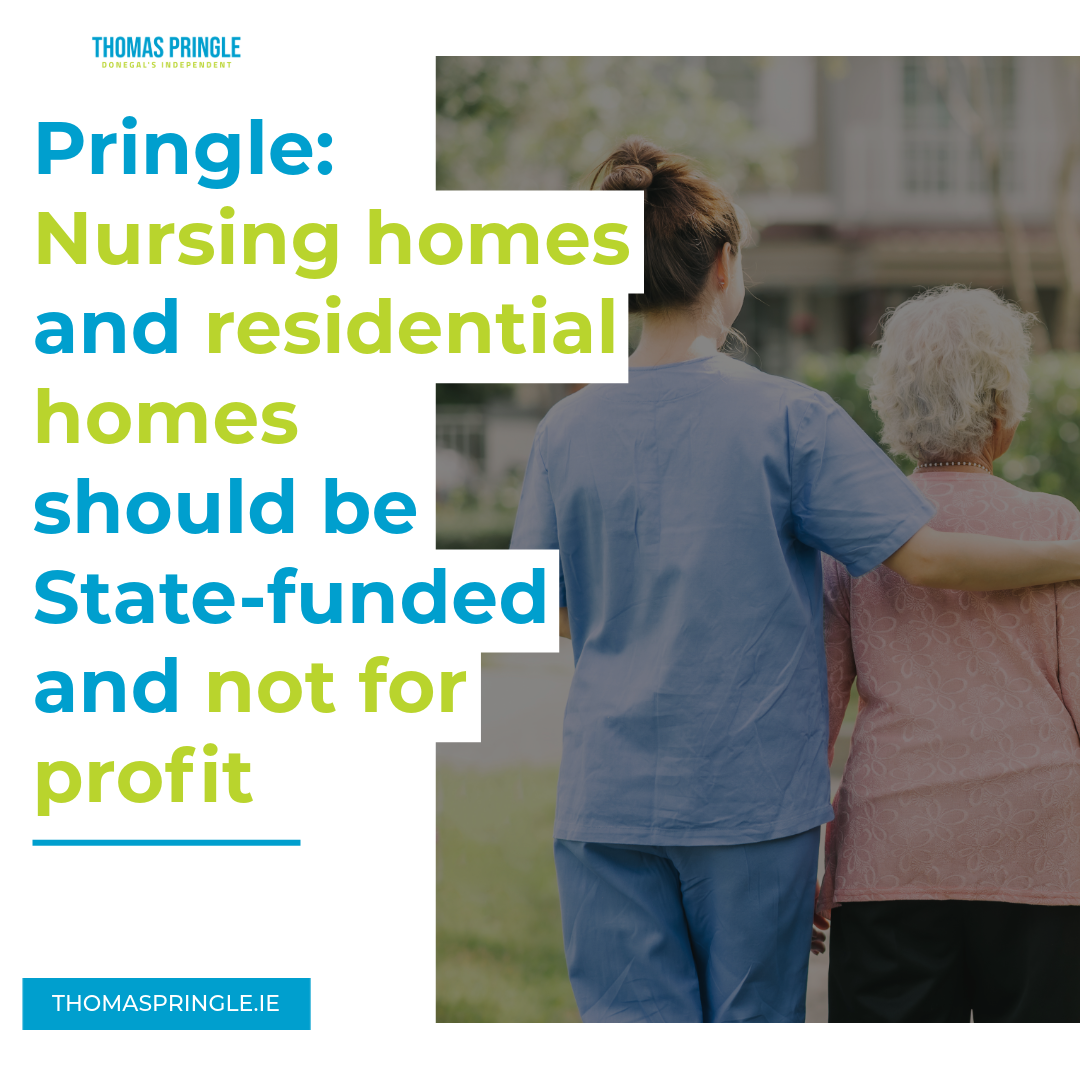- Pringle: We need a policy that recognises the importance of inshore fishing
- Pringle: Disabled people and carers face crisis of State neglect
- Pringle: Failed FF/FG housing policies forcing people to put their lives on hold
- Pringle welcomes Donegal council motion on Occupied Territories Bill: ‘We cannot stand by in the face of genocide’
Pringle: Nursing homes and residential homes should be State-funded and not for profit
- Updated: 20th May 2024

Independent TD for Donegal, Thomas Pringle, said all nursing homes and residential homes for people with disabilities should be funded and provided for by the State.
Addressing the Dáil today, Deputy Pringle said: “The recent, significant increase of nursing homes in private ownership is a very worrying trend. We are seeing more private beds and fewer publicly funded ones every year.
“As well as this there has been a move to much larger providers, with many ‘provider groups’ taking over the operation of nursing homes as well. These providers are mainly financed by international private equity and they run nursing homes for profit.
“This brings with it many issues and I strongly disagree with the provision of any sort of care for profit. The State should be obliged to care for those who need it and we shouldn’t allow international, private companies to come here and profit from providing what is a necessary care service.
“As well as this, these providers are also given public money through the Nursing Home Support Scheme. If we were to put money into anything, it should be put into public beds and a publicly funded model,” he said.
The deputy was speaking on Health (Miscellaneous Provisions) (No. 2) Bill 2024.
Deputy Pringle said the minister should prioritise as a matter of urgency the move away from a dependency on large nursing home chains and ensure direct, public provision of nursing home care.
Deputy Pringle said: “Hiqa’s overview report on ‘Monitoring and Regulation of Older Persons Services in 2022’ has shown that, while the closures have occurred across the country, rural areas have been most impacted,” saying: “Data on closures show the disproportionate impact closures are having on some counties, especially in the west of the country. The report shows that in Donegal alone, there had been a decrease of 43 beds in 2022.”
The deputy said: “The report also showed that private owners owned and operated 77% of designated centres in Ireland, with 81% of the nursing home beds. The HSE only owned 20% of nursing homes and 16% of the beds. This needs to be addressed, preferably by providing fully funded, HSE-owned, nursing homes.”
The deputy said the legislation must also address provision of intermediate care, saying most patients in nursing homes are too well to be in nursing homes but there are no other facilities for them. He said there is a proposal in Ardara that represents the type of model the State should encourage.
Deputy Pringle said: “Section 13 of this act is particularly important as it seeks to provide a clear legal basis for the Chief Inspector to enter and inspect a premises which is not registered with HIQA. The fact that this is not explicitly provided for in current legislation I think is concerning.”
The deputy said: “This is very positive and I think an important step, especially given the fact that there have been examples of compliance issues in nursing homes and residential homes for people with disabilities in the past.
“For example, the handling of the Brandon report has shown us the importance of raising issues and unfortunately the extent that certain people within the HSE, at all levels, locally, regionally and nationally, are willing to go to shut down and cover up some issues.” He said Hiqa also had responsibility in relation to the handling of the Brandon report.
Deputy Pringle said: “Whatever system we put in place, it has to be accountable and it also has to be transparent.”
The deputy also asked when Minister Anne Rabbitte’s review into the Brandon case would be published, saying the report was supposed to be published last year.



